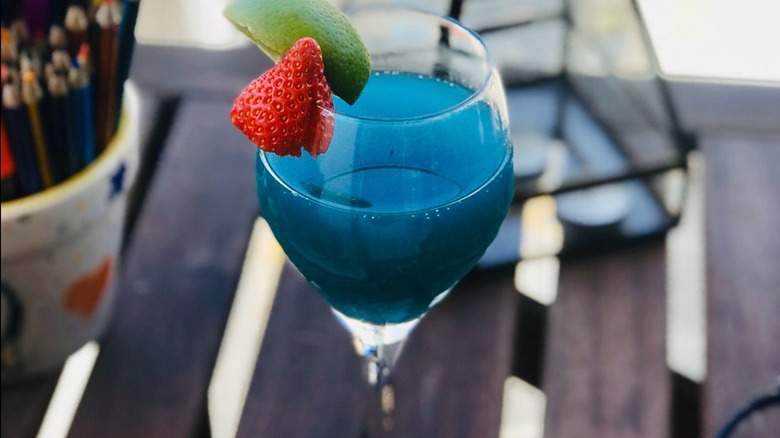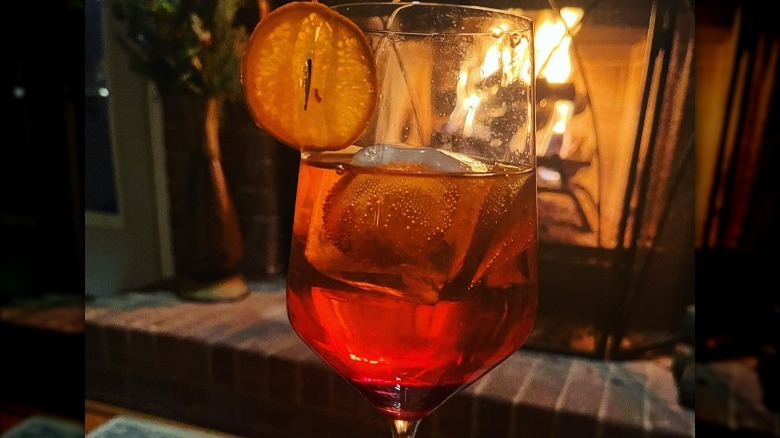The Possible Downside To Canned Mocktails
Researchers have collected data about alcohol usage and perceptions for decades, but, according to information provided by Gallup, consumption hasn't really changed that much since records began in 1939. This is particularly interesting considering that more than half of people believe that drinking alcohol is somewhat negative to the person doing it, while 55% think that it somewhat negatively affects society.
That's where the mocktail can come sliding in. Nation's Restaurant News explains that a mocktail has evolved from being simply an exotic juice drink into an exciting cocktail alternative, thanks to the popularity of no or low-alcohol drinks (total alcohol-free beverage sales have surged more than 20% to $395 million, notes NielsenIQ).
However, although mocktails obviously boast the alluring feature of being a non-alcoholic alternative to drinking, the reality requires a little more investigation. In fact, The Washington Post presents evidence to suggest that consuming alcohol-free drinks could be detrimental to people trying to reduce their alcohol intake.
Mocktails encourage drinking despite lacking alcohol
For people who are comfortable with their alcohol consumption, The Washington Post makes clear that mocktails can present a practical alternative to drinking traditional beverages — such as in certain social situations or when people are pregnant. However, for people living with moderate to severe levels of what it terms Alcohol Use Disorder (AUD), mocktails and similar drinks can still generate cravings for alcohol.
The National Institute on Alcohol Abuse and Alcoholism defines AUD as "an impaired ability to stop or control alcohol use", with 14.1 million adults diagnosed with it. Despite lacking alcohol, the increasing similarity that mocktails have to their boozy counterparts means that they can actually cause cravings for alcohol, explains The Washington Post.
This is because mocktails frequently smell, look, and taste identical to alcoholic variants, and can be drunk in situations where others are drinking alcohol — potentially creating a temptation to join in. Additionally, non-alcoholic beers can actually contain small quantities of alcohol, which is something important to look out for if you're seeking a completely alcohol-free alternative.
If you or anyone you know needs help with addiction issues, help is available. Visit the Substance Abuse and Mental Health Services Administration website or contact SAMHSA's National Helpline at 1-800-662-HELP (4357).

